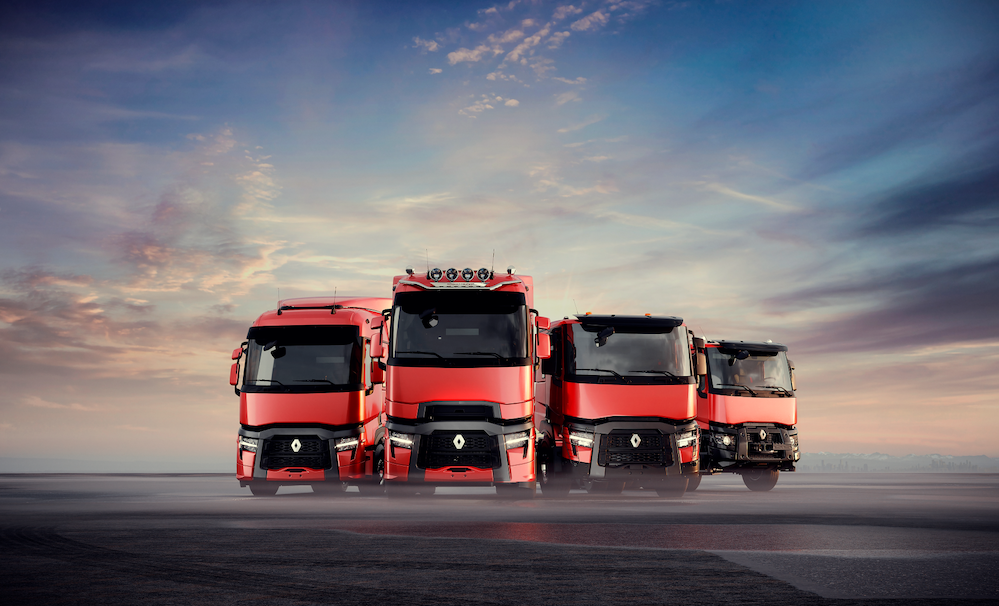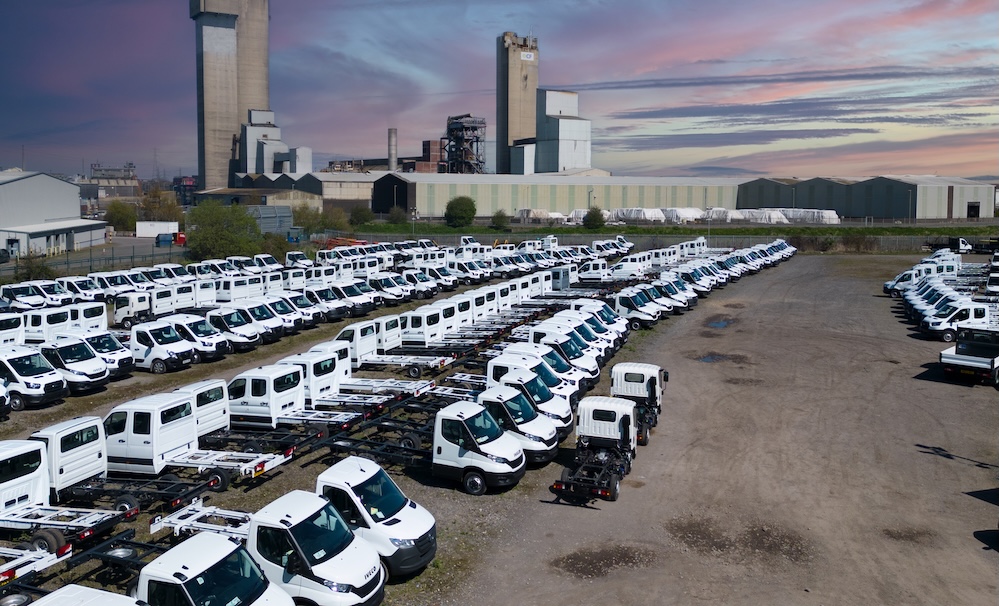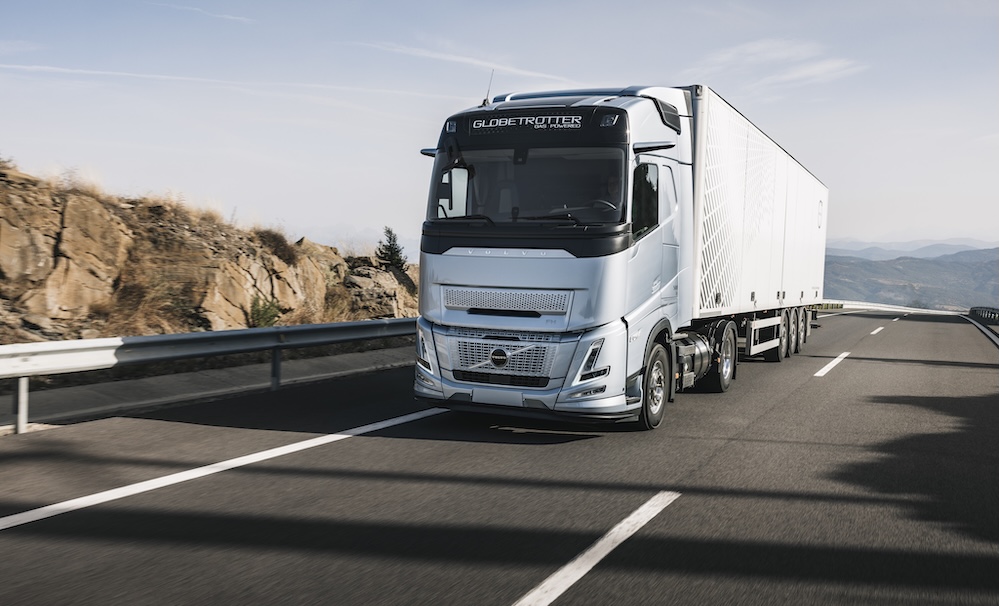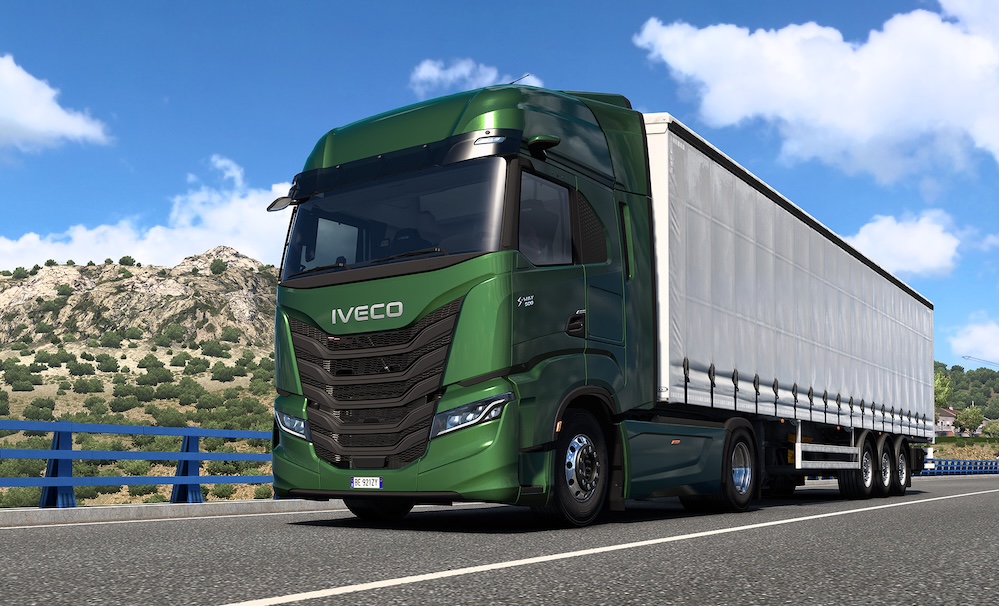Renault Trucks is upgrading its T, T High, C and K ranges in 2021, bringing major improvements in terms of driving comfort, on-board comfort, safety and productivity.
This is the most important evolution since the total renewal of the manufacturer’s ranges in 2013.
A bolder exterior
In 2021, Renault Trucks is changing the exterior design of its vehicles, adopting a more assertive style, particularly in terms of the headlights, which have been reduced in size to increase the painted surface of the lower body section, which includes bumper corner, step boxes and lower front panel. A new honeycomb grille completes the modern, sleek design of the 2021 Renault Trucks.
Improved driving comfort
- New multi-directional steering column
The vehicles are fitted with a new full three-axis adjustable steering column for drivers to adopt the driving position that suits them best, tailored to their personal preference. An intuitive, single foot control sets both the position and the tilt of the steering wheel. Adjustment with both hands on the wheel and instant locking ensures both precision and safety. In addition, the ignition barrel on the column has been replaced by a start button for optimum convenience and security.
Two lower dash-located USB-C ports provide easy access charging points for phone and devices.
- New seats
As an HGV driver spends an average of nine hours a day behind the wheel, the seats need to remain comfortable throughout the life of the vehicle – to be suited to each driver, and the demands of his or her job. Renault Trucks has introduced new seat materials, building on the exceptional comfort and support offered by the seat itself, and designed to withstand the many climbs in and out of the cab every day. Materials are finished to be easier to clean, and seat covers are fully removable. New fabric and part leather designs are introduced. A redesigned home-from-home sleeping area
- Home-from-home sleeping area
A truck is not only a driver’s work place, it is also where they rest and sleep. The quality of the bed is therefore crucial. For the driver’s well-being and comfort throughout the lifetime of the vehicle, Renault Trucks has increased the thickness of the mattress of the “Serenity” bunk by 13% to 170mm and doubled the number of springs, providing optimal support thanks to a better distribution of body weight. A washable memory foam mattress topper can be added as an option. The mattress is also detachable from its base, allowing for the use of fitted sheets.
For added convenience, two USB-C sockets have also been added to the bunk area to make it easier to charge electronic devices, while keeping them within easy reach of the driver during rest periods.
Finally, to improve sound quality in the cab, Renault Trucks has increased the level of insulation in the doors and teamed up with the French manufacturer Focal, for the supply of hi-fi equipment and speakers.
Increased safety for drivers, their loads and road users
High safety levels for drivers and road users have also been a core focus in the development of the Renault Trucks T, T High, C and K evolution ranges.
The new Renault Trucks T, T High and C on-road models are fitted with 5 Cell LED front lamps as standard with daytime running, main beam, fog and indicator functions. The new wraparound design improves side visibility and safety. As it is closer to natural light, LED light gives drivers a better perception of contrasts and colours, and with light output that is three times that of standard lights, night-time visibility and therefore safety is significantly improved. A further advantage of LED technology is its reliability and longevity. The life of an LED source is up to thirty times longer than that of a conventional bulb.
Additional LED lights have also been positioned on the inside of the doors to illuminate the door sill for increased driver safety when getting in and out of the vehicle at night.
For the optimal safety of drivers, their loads and road users, a number of options are also available, including anti-intrusion door lock (safety door-lock), cameras and presence sensors, as well as vision doors providing excellent visibility of pedestrians and cyclists. For construction models, high-visibility painting of exterior grab handles are an additional safety feature.
Finally, the anti-rollaway parking brake emergency application reduces the risk of unexpected vehicle movement when the driver leaves the cab, by automatically activating the park brake to stop the truck.
Reduced fuel consumption and optimised maintenance
- 3% fuel savings
Firstly, the cab’s aerodynamics have been improved around the front grille and wheel arch extensions have been added to improve airflow.
Secondly, equipped with Renault Trucks Euro VI Step E engines, the vehicles have been fitted with new technology to further reduce fuel consumption. These include a new version of the Optivision predictive cruise control system and an optimised cruise control system with two selectable driving modes. ‘Eco on’ is the default mode and optimises fuel consumption by adjusting acceleration, gear shifting, cruise control and deceleration, whereas “Eco off” allows drivers to change the driving mode.
A new “Pulse and Glide” function further improves fuel consumption by maintaining the vehicle’s speed around the Cruise Control set point (+/- 2km/h).
Finally, the new Renault Trucks T and T High vehicles are fitted as standard with Category A tyres as standard, the most efficient on the market in terms of fuel economy.
Vehicles supported by new service offers
- Software optimisation through remote update services
Over the air software updates give drivers the opportunity to remotely download the optimum settings for their vehicles. This ensures that their vehicles operate at optimum efficiency without the need to have any software updates undertaken by their dealer.
- Extended oil change intervals up to 150,000 km
Depending on usage and mileage, oil change intervals for vehicles fitted with 13-litre Euro VI engines can be extended to 150,000 km or 18 months. This can result in lower contracted maintenance costs (labour and parts), optimised maintenance schedules with fewer service intervals and additional fuel savings.








